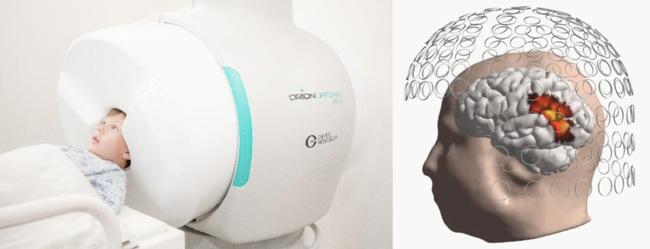Compumedics builds momentum in China for brain mapping tech
Compumedics has received an order from Hangzhou Normal University (HZNU) in China for its Neuroscan Orion LifeSpan MEG system to map brain activity.

Compumedics receives new order for Neuroscan Orion LifeSpan MEG system in China
The order will bring installation of systems in China to four with total revenue of about $20 million
Compumedics expects to ship and install the new system at Hangzhou Normal University in 2026
Special Report: Compumedics has received a new order from Hangzhou Normal University (HZNU) in China for its Neuroscan Orion LifeSpan magnetoencephalography (MEG) system for mapping brain activity.
Compumedics Limited (ASX:CMP)said the sale was valued at $5.7 million and came via Beijing Fistar, the company’s long-term Chinese distributor for its brain research technology.
The company said the MEG system, along with its CURRY neuroimaging software and an array of ancillary equipment, would ship in early 2026 after completion of site preparations.
Compumedics “expects to receive a significant deposit this month” to secure the new order with additional payments tied to shipment and installation.
The company said with the latest order, installations would total four Compumedics MEG labs in China for a total of ~$20m in revenues.
The global medical device company develops, manufactures and commercialises diagnostic technology for sleep, brain and ultrasonic blood-flow monitoring.
About Neuroscan Orion LifeSpan MEG
Compumedics said MEG was a functional neuroimaging technique that mapped brain activity by detecting magnetic fields generated by electrical currents in the brain, using highly sensitive detectors.
The company said it had revolutionised MEG with its Neuroscan Orion LifeSpan, featuring increased precision and its fully integrated CURRY brain analysis software.
The CURRY software has a complete set of tools for efficient electroencephalography (EEG), magnetoencephalography (MEG) and event-related potential (ERP) recording, review and multi-modal integration.
The company said it had set the gold standard in multi-modality brain analysis software, including MEG, EEG, MRI, CT, SPECT and PET over the past 30 years.
In parallel the company said its technology partner, the KRISS MEG team led by Dr Yong-Ho Lee, had developed the most advanced MEG brain imaging scanner.
The company said at the heart of the Neuroscan Orion LifeSpan were patented and exclusive double relaxation oscillation superconducting quantum interference devices (DROS SQUIDs), offering unparalleled accuracy compared to conventional MEG sensors.
The system also includes:
- A unique dual-helmet dewar, allowing precise measurements for adults and children
- Hyperscanning capabilities, supporting simultaneous brain activity measurement of multiple subjects.
- A sensors-in-vacuum cooling system, ensuring more sensitive readings
- A virtual 100% coolant recycling system, enabling continuous 24/7 operation without helium refills.
Compumedics said it continued to develop its Orion LifeSpan MEG, incorporating multiple improvements over earlier systems.

Dominant supplier of MEG tech in China
The latest Orion LifeSpan order follows successful installations at Tianjin Normal University (TJNU) and further orders from Tsinghua and Tianjin Universities.
In a strong endorsement for Compumedics, HZNU’s selection of the company’s technology followed a lengthy technical evaluation of all available MEG systems from multiple vendors.
Compumedics said it was now firmly establishing itself as the dominant supplier of MEG technology in the Chinese neurosciences market.
“China is the world’s fastest-growing market for advanced brain imaging technology, and we are proud to play a key role in this growth,” Compumedics global neuro-imaging business director Gordon Haid said.
He said MEG held tremendous potential for understanding complex brain functions, both healthy and pathological.
“Our unique dual-helmet design makes it ideal for pediatric studies, including tracking brain development and maturation,” he said.
“The endorsement from four prestigious universities validates our design as both groundbreaking and highly sought after.”
Haid said Compumedics also planned to expand into the North American market in 2025.
Executive chairman David Burton said China had become an early adopter of its unique MEG technology.
“The business opportunity is now gaining material commercial traction, positioning us for significant commercialisation in the foreseeable future,” he said.
“We look forward to groundbreaking advances from HZNU’s ambitious neuroscience initiatives.”
This article was developed in collaboration with Compumedics, a Stockhead advertiser at the time of publishing.
This article does not constitute financial product advice. You should consider obtaining independent advice before making any financial decisions.


